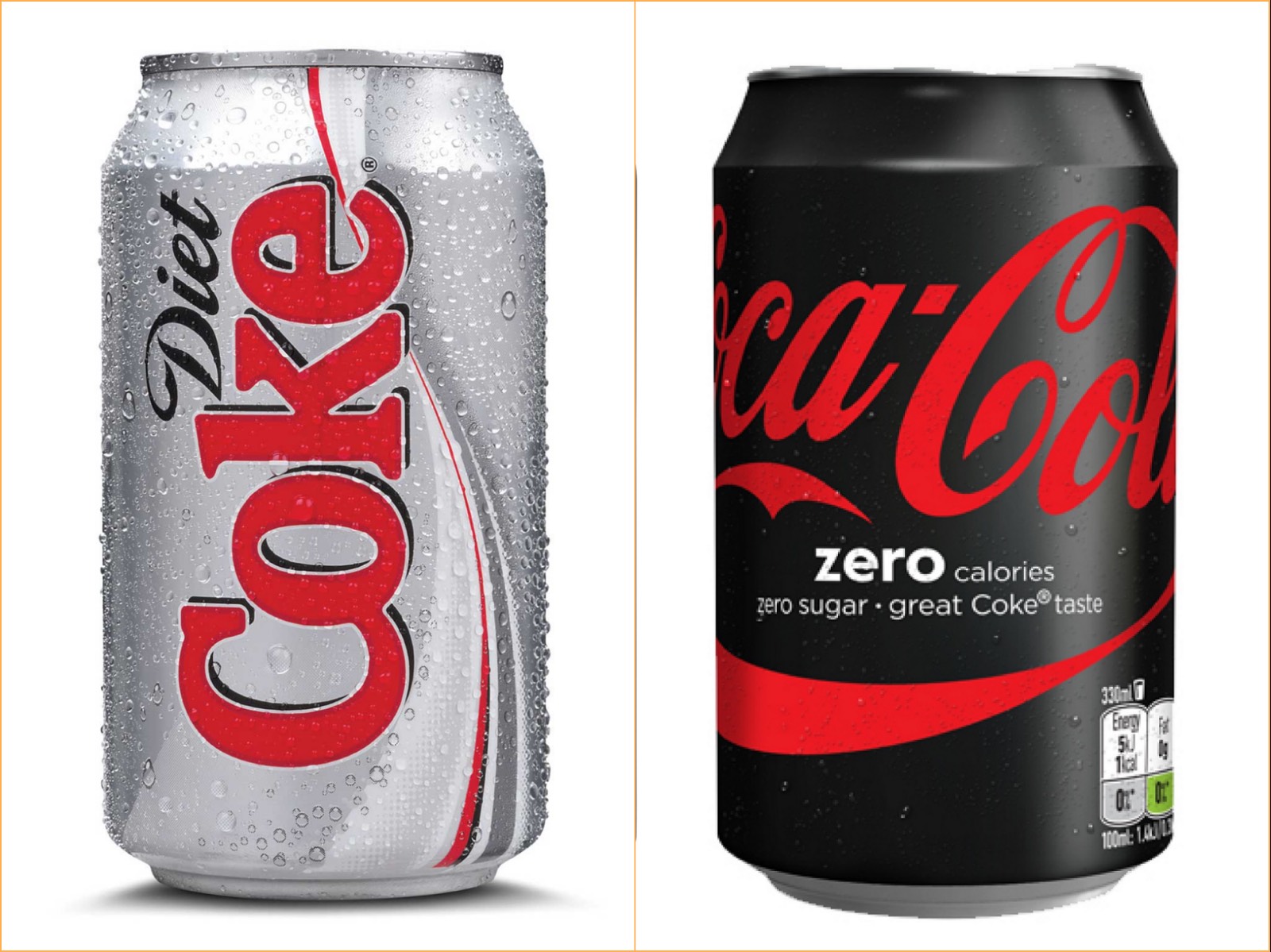When it comes to Coca-Cola products, people tend to be die-hard fans. Many of us know someone who can’t go a day without a Diet Coke (or two or three). And while Diet Coke has been a leading sugar-free soft drink since it was first released in 1982, it came to light that young adult males shied away from this beverage — identifying diet cola as a woman’s drink. The company’s answer to that predicament came in 2005 — in the form of a shiny black can — with the release of Coca-Cola Zero.
While Diet Coke was created with its own flavor profile and not as a sugar-free version of the original, Coca-Cola Zero aims to taste just like the “real Coke flavor.” Despite their polar opposite advertising campaigns, the contents and nutritional information of the two sugar-free colas is nearly identical. With that information in hand we at HuffPost Taste needed to know: Which of these two artificially-sweetened Coca-Cola beverages actually tastes better? And can you even tell the difference between them?
Before we get to the results of our taste test, here are the facts:
Diet Coke
Motto: Always Great Taste
Nutritional Information: Many say that a can of Diet Coke actually contains somewhere between 1-4 calories, but if a serving size contains fewer than 5 calories a company is not obligated to note it in its nutritional information. Diet Coke’s nutritional information reads 0 Calories, 0g Fat, 40mg Sodium, 0g Total Carbs, 0g Protein.
Ingredients: Carbonated water, caramel color, aspartame, phosphoric acid, potassium benzonate, natural flavors, citric acid, caffeine.
Artificial sweetener: Aspartame
Coca-Cola Zero
Motto: Real Coca-Cola Taste AND Zero Calories
Nutritional Information: While the label clearly advertises this beverage as a zero calorie cola, we are not entirely certain that its minimal calorie content is simply not required to be noted in the nutritional information. Coca-Cola Zero’s nutritional information reads 0 Calories, 0g Fat, 40mg Sodium, 0g Total Carbs, 0g Protein.
Artificial sweetener: Aspartame and acesulfame potassium
Ingredients: Carbonated water, caramel color, phosphoric acid, aspartame, potassium benzonate, natural flavors, potassium citrate, acesulfame potassium, caffeine.
The Verdict:
Twenty-four editors blind-tasted the two cokes, side by side, and…
- 54 percent of our tasters were able to distinguish Diet Coke from Coca-Cola Zero
- 50 percent of our tasters preferred Diet Coke to Coca-Cola Zero, and vice versa
Here’s what our tasters thought of the two sugar-free soft drinks:
Diet Coke: “Tastes fake right away.” “Much fresher brighter, crisper.” “Has the wonderful flavors of Diet Coke’s artificial sweeteners.”
Coca-Cola Zero: “Has more of a sharply sweet aftertaste I associate with diet sodas.” “Tastes more like regular coke, less like fake sweetener.” “Has an odd taste.” “Tastes more like regular.” “Very sweet.”
Overall comments: “That was a lot more difficult than I though it would be.” “Both equally palatable.” A few people said Diet Coke tasted much better … unbeknownst to them, they were actually referring to Coca-Cola Zero.
IN SUMMARY: It is a real toss up. There is not one artificially-sweetened Coca-Cola beverage that outshines the other. So how do people choose between one or the other? It is either a matter of personal taste, or maybe the marketing campaigns will influence their choice.
Which sugar-free Coca-Cola product do you prefer? Let us know in the comments below.







